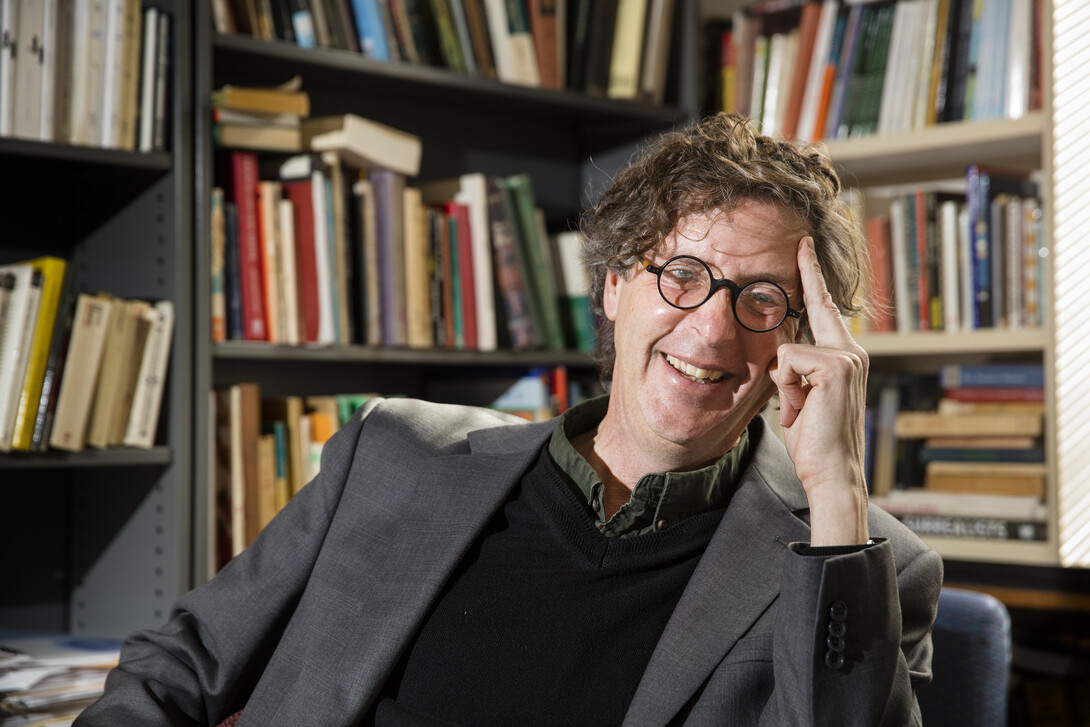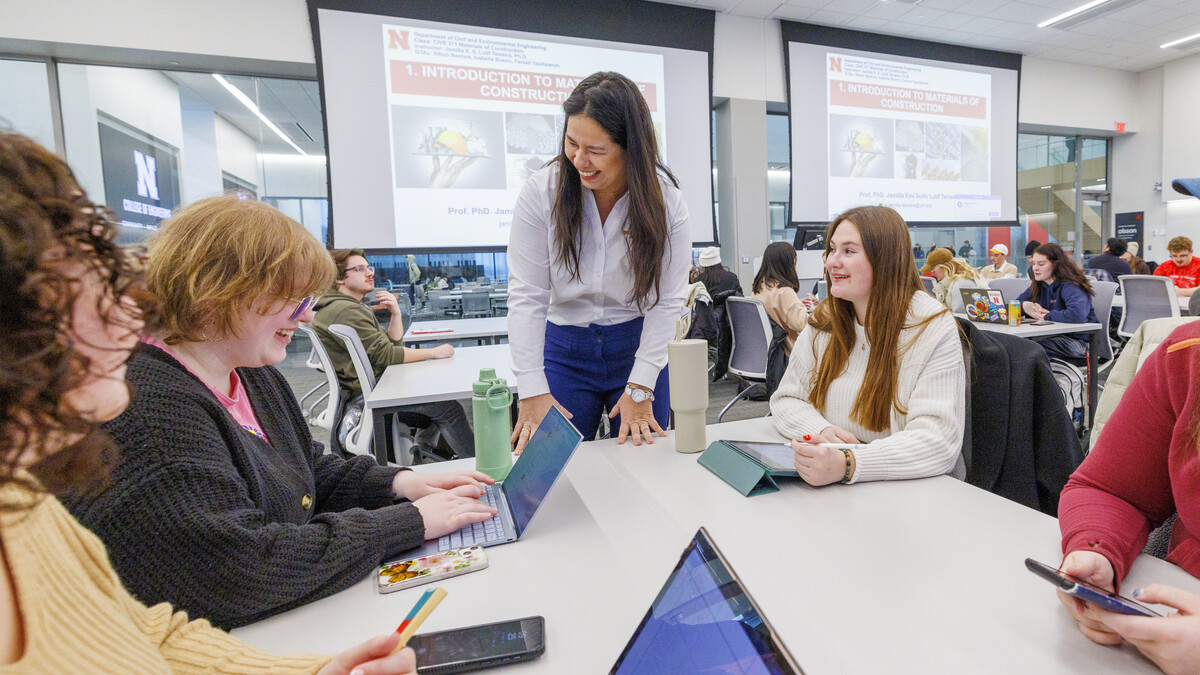
In a technology-driven world, what good is having and honing the skill and art of translation?
Ask Jordan Stump, University of Nebraska-Lincoln professor of French, who has recreated more than 30 French-language novels into English – works that have won awards and gained worldwide attention.
Stump’s work, in an era where computer code seems to be the answer to every task, remains a wonderfully analog example of human ingenuity and understanding.
“You do need to be able to see the much larger picture of what’s going on in a work or even in a sentence beyond simply the words and the grammatical structures that make it up,” he said. “What (technology) can’t do is understand why an author or character says something this way as opposed to that way, and why it matters, and how to capture it.”
In an increasingly interconnected world, many colleges and universities are beginning to see the value of translation – something Stump has appreciated and understood for years.
He was 11 when he went with his parents, professors at the University of Kansas, to Paris for a year. – and fell in love with France and French. That love carried him through a college course nearly a decade later.
“I found that I really liked French, (and also) that I loved the literature,” he said.
Stump came to UNL in fall 1992. A conversation with the then-director of the University of Nebraska Press, Bill Regier, changed his career course.
“When I came here, the press was very famous for translations of European literature into English,” Stump said. “I had just discovered an author named Marie Redonnet, and I was telling (Regier) that they should publish a translation of her novels. He said that I seemed so enthusiastic about it that I should do it myself.”
Stump had never done translation before, but found it enthralling.
“I’ve been literally at it every day since that day in October of 1992,” he said.
Since then, Stump has translated novels by Eric Chevillard, Antoine Volodine, Jean-Philippe Toussaint, Jules Verne and others. He has won many awards, including the French-American Foundation’s annual translation prize in 2001. In 2006, the French government knighted him for his contributions to French literature.
His work has allowed him to meet many of his favorite authors because he chooses to translate only the books that speak to him. He must really like a book in order to pore over it 10 to 12 times during the translation process.
“It’s the chance to see something that you love taking shape in a different form. Trying to make it be the thing that you fell in love with is a tremendous, great struggle,” Stump said. “It’s a wonderful puzzle.”
It is the original author’s unique voice that Stump seeks to defend and not distort – what he calls the “great torment.”
“One never really succeeds all the way,” he said. “When it works, it’s an astonishing feeling.”
Stump has seen translation gain popularity in American popular culture as well as academic circles. He said schools have expanded foreign language offerings to include translation studies, something UNL’s Department of Modern Languages and Literatures also is examining.
Stump attributes the shift partly to a more globalized society, which has brought about new interest in translated works.
“Traditionally, Americans are famous for their resistance to reading translations,” he said. “The world is changing, though, and we’re possibly a little more intellectually adventurous. People travel more than they used to.
“People are much more exposed to foreign cultures and much less dismissive of them.”
That is good for foreign language students, he said.
“Translation gives them the experience of a text that nothing else really comes close to,” he said. “It’s a sort of physical contact with the text, and the language of the text, and of our language too.”







